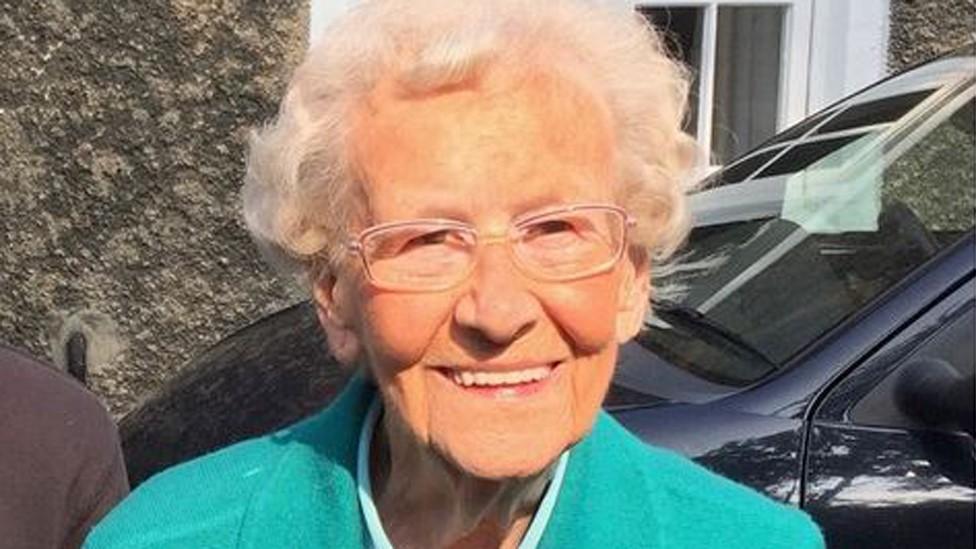Heysham fire death: Truth or dare confession was false, jury told
- Published

Mrs Gregory died in hospital four days after being pulled from the fire at her home in Heysham
A student's confession in a game of truth or dare that he murdered a 94-year-old woman was "a misguided attempt to impress friends", a jury has heard.
John Harrison QC, defending, told Preston Crown Court Tiernan Darnton's confession that he set a curtain alight at the home of Mary Gregory in Heysham, Lancashire, in 2018 was "false".
Mr Harrison said the 21-year-old's later confession to a counsellor was also "pure fiction".
Mr Darnton denies murder.
Mary Gregory, whose death was assumed to have been a tragic accident, was pulled from her bungalow on Levens Drive on 28 May 2018 and taken to the Royal Lancaster Infirmary, where she died four days later from the effects of smoke inhalation.
An inquest later took place in which a coroner recorded a conclusion of accidental death.
The prosecution has alleged that the then 17-year-old persuaded his friends not to reveal what he said during the Truth or Dare game, but said that nearly a year later, he made a similar admission to a counsellor, who told the police.
'Inherently unlikely'
In his closing speech to jurors, Mr Harrison defending said the alleged confession was "false" and "a misguided attempt to impress friends".
He added that what Mr Darnton then told the counsellor was "pure fiction", as he was "troubled by intrusive and dark thoughts, which led him to blame himself for what happened".
The defendant's stepfather, Chris Gregory, earlier told the court that Mr Darnton had suffered from depression for a number of years and was plagued by "intrusive" and "disturbing" thoughts.
Mr Gregory, the son of Mrs Gregory, said he would have taken Mr Darnton to the police if he believed he had hurt his mother in any way.
Mr Harrison said the initial view of independent fire investigator Jim Stone in August 2018 that the probable cause of the fire was a carelessly discarded cigarette was "unbiased" and based upon what he saw at the scene and information received.
The court has heard Mr Stone completed a second report in December 2020 after Mr Darnton's confession, in which he he could not discount the possibility that a naked flame was the ignition source, but maintained it was more likely to be a cigarette.
"He has not shifted that conclusion," Mr Harrison said.
"We say the fire was not started by a naked flame, because if it had been, there would be a completely different scene."
Mr Harrison told the jurors that if they accepted Mr Stone's evidence, it had "a profound impact on the prosecution case, because it means their case is inherently unlikely".
The trial continues.

Why not follow BBC North West on Facebook, external, Twitter, external and Instagram, external? You can also send story ideas to northwest.newsonline@bbc.co.uk
Related topics
- Published4 November 2021

- Published3 November 2021

- Published2 November 2021

- Published1 November 2021
